‘One of the biggest challenges facing cities today is that no single organisation has complete control over the solutions to increase our resilience to the broad range of challenges we face’
– George Ferguson, mayor of Bristol
The way society is set up right now isn’t working. Inequality is getting wider and climate change is getting worse. There is no quick fix solution, no one policy that will be the magic bullet. This is because we live in a complex interdependent world, in systems that are rooted into the framework of our economy, our politics. To create a more socially just and sustainable society we need systems change.
Systems change can seem vast, abstract, distant. But the systems that we rely on every day, for food, for shelter, for warmth and light, are experienced where we live. Systems themselves are place-based, sometimes spanning many places, but always rooted by geography.
Because we experience these systems each in our place, what potential is there for place-based systems change? Challenging and subverting and pioneering new activities where we are?
I am currently undertaking a mapping project in Bristol. I’m mapping individuals and projects that are questioning the current system, subverting it in some way, pioneering new projects that, if nurtured, could be the groundwork of a new economy, a new system.
Why Bristol?
There is something unique about this city that makes it ripe for place-based systems change. That is, there are enough levers that can be pulled in the local context to radically change people’s lived experience of Bristol.
Obviously there will be levers that sit at the regional, national and even international level that will mean the whole system will not be shifted by Bristol alone but there are three main levers Bristol has at its disposal:
- This year Bristol is European Green Capital – awarded because of its potential to move towards being a sustainable city. There is a lot of momentum behind the idea of Bristol being a leader in the sustainability field
- It has an elected mayor with a lot of power to shape the lived experience of citizens at a local level (for better or for worse) and Bristol is leading the debate around devolving and decentralising power away from Westminster to give local people more control over the decisions that effect their lives. This provides an opportunity – a space – to plant ideas for the future of this city, to germinate the new system right here, right now.
- It is a city with many challenges (inequality, high levels of child poverty, social exclusion, silos of people and organisations limiting thinking and action, as well as continued reliance on a system that is continuing to damage the planet and its people) but it is a city with a highly active population – with a radical history, an subversive culture, and individuals and groups ready to act to fight injustice, inequality and climate change.
With all this potential to create a more socially just and sustainable society in the city, what will it take to reach a tipping point? To transition to a new economy, to set the rules of the new mainstream?
Through mapping the work that is already taking place in this space, I hope to identify the strengths of this burgeoning community of activists, academics, grassroots campaigners, faith groups, unions, intellectuals, and practitioners. And to find the gaps, the challenges that need to be overcome, and the work that is still yet to be done.












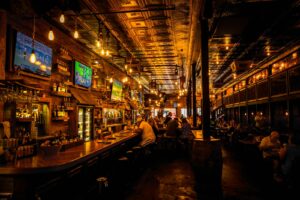
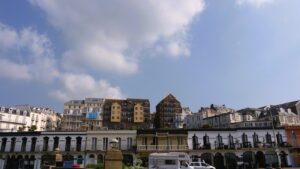
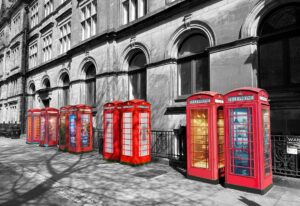
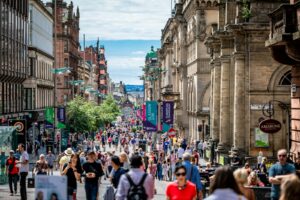
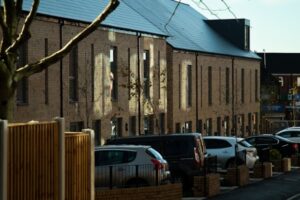
Great article, Kat. I’m working on a Resilient Prosperity guide that addresses systems change in communities. The goal is to create secure, inclusive, green economies.
You can download the current draft at http://bit.ly/1toNF4D
I hope it’s of some value to you. Cheers! – Storm
Great project.
If you’ve not read Douglas Adams’ “Dirk Gently’s Holistic Detective Agency” I highly recommend it. Takes an hour or two to read, very funny and extremely pertinent. The protagonist solves cases by working upon the assumption that “the fundamental interconnectedness of all things” will lead him to the answer.
Starting from the premise that our inter-connectivity creates meaning in our lives, systems need to be put in place that first and foremost create opportunities for community building, for tearing down false dichotomies, for engaging with each other as people and not simply as potential customers and consumers.
An inherently anti-capitalist systems approach.
I love what you are doing and wish you luck and strength to carry it through.
And Storm, I had a look at your guide and wanted to say that I have found nothing that I disagree with yet. In Fishponds (Bristol) over 1500 people made it clear that a new McDonalds was not wanted in a neighbourhood setting. The idea of Resilient Prosperity will never be realised unless people resist the old monolithic cultures. And we are!
I can imagine a lot of them won’t want to be mapped